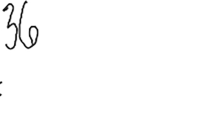Abstract
Teachers are expected today to assess student understanding as an integral part of instruction, using a combination of various assessment methods and tools, among which are observing students solve problems in class and listening to their mathematical discussions. The aim of our study is to explore what it might mean for a teacher to hear students and to interpret their talk and actions. Analysis of an interview with Ruth – an experienced elementary school teacher – after she observed two of her students solve a mathematics problem, suggests four types of her interpretation: describing, explaining, assessing and justifying. This analysis illustrates the complexity of the way Ruth hears her students, as is indicated even in the relatively simple case of describing. Using various sources of data we also analyze different characteristics of Ruth’s hearing for the describing and explaining types of interpretation and examine possible resources for her over-hearing, compatible-hearing, under-hearing, non-hearing and biased-hearing.
Similar content being viewed by others
References
D.L. Ball (1997) What do students know? Facing challenges of distance, context and desire in trying to hear children B.J. Biddle T.L. Good I.F. Goodson (Eds) International handbook of teachers and teaching Kluwer Dordrecht, The Netherlands 769–818
C. Barnett (1991) ArticleTitleBuilding a case-based curriculum to enhance the pedagogical content knowledge of mathematics teachers Journal of Teacher Education 42 263–272
P. Black D. Wiliam (1998) ArticleTitleAssessment and classroom learning Assessment in Education: Principles, Policy, and Practice 5 7–74
S. Crespo (2000) ArticleTitleSeeing more than right and wrong answers: Prospective teachers’ interpretations of students’ mathematical work Journal of Mathematics Teacher Education 3 155–181 Occurrence Handle10.1023/A:1009999016764
R. Even (1993) ArticleTitleSubject-matter knowledge and pedagogical content knowledge: Prospective secondary teachers and the function concept Journal for Research in Mathematics Education 24 94–116
R. Even (1999) ArticleTitleIntegrating academic and practical knowledge in a teacher leaders’ development program Educational Studies in Mathematics 38 235–252 Occurrence Handle10.1023/A:1003665225190
R. Even Z. Markovits (1993) ArticleTitleTeachers’ pedagogical content knowledge of functions: Characterization and applications Journal of Structural Learning 12 IssueID1 35–51
R. Even D. Tirosh (1995) ArticleTitleSubject-matter knowledge and knowledge about students as sources of teacher presentations of the subject matter Educational Studies in Mathematics 29 1–20 Occurrence Handle10.1007/BF01273897
R. Even D. Tirosh (2002) Teacher knowledge and understanding of students’ mathematical learning L. English (Eds) Handbook of international research in mathematics education Erlbaum Mahwah, NJ 219–240
R. Even T. Wallach (2004) ArticleTitleBetween student observation and student assessment: A critical reflection Canadian Journal of Science, Mathematics, and Technology Education 4 483–495 Occurrence Handle10.1080/14926150409556629
E. Fennema T.P. Carpenter M.L. Franke L. Levi V.R. Jacobs S.B. Empson (1996) ArticleTitleA longitudinal study of learning to use children’s thinking in mathematics instruction Journal for Research in Mathematics Education 27 403–434
B.G. Glaser A.L. Strauss (1967) The discovery of grounded theory: Strategies for qualitative research Aldine New York
E. Kazemi M. Franke (2004) ArticleTitleTeacher learning in mathematics: Using student work to promote collective inquiry Journal of Mathematics Teacher Education 7 203–235 Occurrence Handle10.1023/B:JMTE.0000033084.26326.19
Z. Markovits R. Even (1999a) ArticleTitleThe decimal point situation: A close look at the use of mathematics-classroom-situations in teacher education Teaching and Teacher Education 15 653–665 Occurrence Handle10.1016/S0742-051X(99)00020-7
Z. Markovits R. Even (1999b) Mathematics classroom situations: In-service course for elementary school teachers B. Jaworski T. Wood A.J. Dawson (Eds) Mathematics teacher education: Critical international perspectives Falmer Press London 59–67
J. Mason (2002) Researching your own practice: The discipline of noticing Routledge Farmer London
C. Morgan A. Watson (2002) ArticleTitleThe interpretative nature of teachers’ assessment of students’ mathematics: Issues for equity Journal for Research in Mathematics Education 33 78–110
InstitutionalAuthorNameNational Council of Teachers of Mathematics (NCTM) (1991) Professional standards for teaching mathematics National Council of Teachers of Mathematics Reston, VA
InstitutionalAuthorNameNational Council of Teachers of Mathematics (NCTM) (2000) Principles and standards for school mathematics National Council of Teachers of Mathematics Reston, VA
C. Nicol (1999) ArticleTitleLearning to teach mathematics: Questioning, listening, and responding Educational Studies in Mathematics 37 45–66
S. Rhine (1998) ArticleTitleThe role of research and teachers’ knowledge base in professional development Educational Researcher 27 IssueID5 27–31
T.A. Romberg (Eds) (1995) Reform in school mathematics and authentic assessment SUNY Press New York
D. Schifter (1998) ArticleTitleLearning mathematics for teaching: From teachers’ seminar to the classroom Journal of Mathematics Teacher Education 1 55–87 Occurrence Handle10.1023/A:1009911200478
L.A. Shepard (2001) The role of classroom assessment in teaching and learning V. Richardson (Eds) Handbook of research on teaching American Educational Research Association Washington, DC 1066–1099
T. Wallach H. Regev (1999) Thinking, discussing and performing Weizmann Institute of Science (in Hebrew) Rehovot Israel
A. Watson (2000) ArticleTitleMathematics teachers acting as informal assessors: Practices, problems and recommendations Educational Studies in Mathematics 41 69–91 Occurrence Handle10.1023/A:1003933431489
T. Wood (2004) ArticleTitleIn mathematics classes what do students’ think? Journal of Mathematics Teacher Education 7 173–174 Occurrence Handle10.1023/B:JMTE.0000033147.72549.73
Author information
Authors and Affiliations
Corresponding author
Rights and permissions
About this article
Cite this article
Wallach, T., Even, R. Hearing Students: The Complexity of Understanding What they are Saying, Showing, and Doing. J Math Teacher Educ 8, 393–417 (2005). https://doi.org/10.1007/s10857-005-3849-2
Issue Date:
DOI: https://doi.org/10.1007/s10857-005-3849-2




